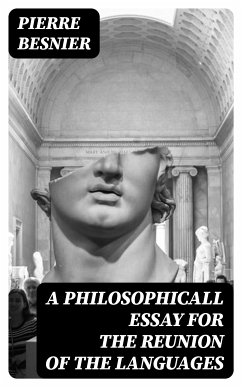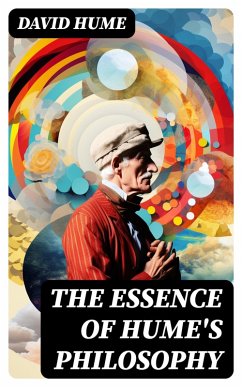
Meditations on First Philosophy (eBook, ePUB)
A Philosophical Treatise in Which the Existence of God and the Immortality of the Soul Are Demonstrated
Übersetzer: Veitch, John

PAYBACK Punkte
0 °P sammeln!
In "Meditations on First Philosophy," René Descartes embarks on a meticulous journey of doubt and inquiry, seeking foundational truths in a world rife with assumptions. Written in a reflective and methodical style, the work unfolds over six meditations, offering a paradigm shift that seeks to establish knowledge on indubitable grounds. Descartes deftly employs skepticism as a tool, famously positing "Cogito, ergo sum" (I think, therefore I am) as the cornerstone of his philosophy. The text is set against the backdrop of the 17th-century Enlightenment, a pivotal era that prioritized reason, sc...
In "Meditations on First Philosophy," René Descartes embarks on a meticulous journey of doubt and inquiry, seeking foundational truths in a world rife with assumptions. Written in a reflective and methodical style, the work unfolds over six meditations, offering a paradigm shift that seeks to establish knowledge on indubitable grounds. Descartes deftly employs skepticism as a tool, famously positing "Cogito, ergo sum" (I think, therefore I am) as the cornerstone of his philosophy. The text is set against the backdrop of the 17th-century Enlightenment, a pivotal era that prioritized reason, scientific inquiry, and the critique of traditional belief systems. René Descartes, often hailed as the father of modern philosophy, was profoundly influenced by the scientific advancements of his time and the methodological rigor exemplified in mathematics. His quest for certainty and his conflict with scholasticism led him to embrace rationalism as a means to strip away fallacies and elevate human understanding. This work encapsulates his philosophical legacy and reflects his broader concerns about the nature of existence and epistemic certainty. "Meditations on First Philosophy" is an essential read for anyone interested in the foundations of modern thought. Its profound insights into the nature of knowledge and existence challenge readers to reconsider their own beliefs through a critical lens. This text is not only pivotal for philosophy students but also offers a rich exploration of rational thought applicable to various disciplines.
Dieser Download kann aus rechtlichen Gründen nur mit Rechnungsadresse in A, B, BG, CY, CZ, D, DK, EW, E, FIN, F, GR, H, IRL, I, LT, L, LR, M, NL, PL, P, R, S, SLO, SK ausgeliefert werden.













